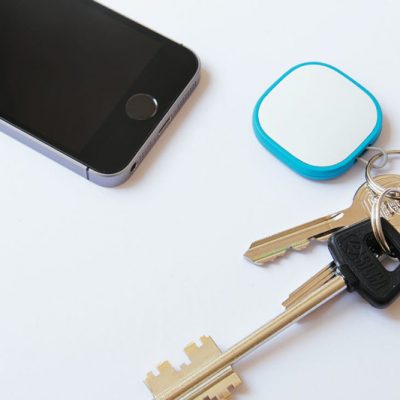Positive Effects of Mobile Phone
Mobile phone is one of the main inventions of the 21st century, and it has had a very significant impact on the lives of people all over the world. The first mobile phone call was made on April 3rd, 1973 when Martin Cooper, a senior telecommunications engineer, made a call to a rival telecommunications company telling them that he was speaking via a mobile phone. The first mobile phone went on sale in the United States of America in 1983. Since the time of invention and commercialization of mobile phones, its use has grown rapidly, several developments have taken place, newer and better devices have been invented and the growth still continues as you can find in many essays https://manyessays.com. Today, more people across the world own and use personal mobile phones and phones are used across the social divide, amongst all races, tribes, religions and geographical places. The early phones were used primarily for making calls with just some additional applications like texting messages, checking time and date, playing simple games and doing mathematical calculations. Today, the use of mobile phones has become very extensive with the introduction of smart phones, development of information technology and mobile internet.
Mobile phones have had several positive impacts on the lives of people all over the world. 65% of mobile phone users say the phones have significantly impacted their lives in a positive way. Less than 1% of users have indicated that mobile phones have some adverse effects. Mobile phones have made it a lot easier to keep in touch with family members, friends, colleagues, workmates, heal care providers and all other people we care about or who are directly involved with our day to day lives. People can communicate conveniently at the comfort of their bedroom or office without the need to make any movement. The convenience created by this method of communication has enabled individuals to save time and money that could otherwise be spent on the queue or the road. The mobile phone has been also very convenient in the communications sector in that information can be passed on and feedback received immediately. This has reduced to a very large extent the need for a middleman to give the information, thus reducing the cases of information distortion, loss or feedback manipulation. The fact that immediate feedback is being received has improved convenience, enhanced more trust and speeded up the communication process. Due to the use of mobile phones, several costs and expenses are cut off. A person can find out how his/her family is doing without the need to move to where they are. Business transactions are completed without incurring any transport costs, and information can be exchanged conveniently without spending much time. Cell phones have made almost everyone reachable from any location across the world, and this has made contact easy and quick.
Mobile phones are also convenient in that they are small in size and easy to carry around. People no longer need to worry about the need to carry bulky car phones like in the 1980s. An average mobile phone today has the same size as a chequebook, and this makes it easy to transport it, walk around with it or even pass it from one person to another. When compared to the old days when individuals either had to carry heavy and bulky phones or even walk several miles just to obtain the services of a phone, mobile phones make communications just a finger dial away. Mobile phones have also facilitated faster responses in cases of emergency like medical attention, fire or car accidents. Individuals can access the service providers faster and obtain the necessary help as soon as possible.
Mobile phones today have also been fitted with cameras, radio, mp3 players and video viewers. This made life more simple and fun in that in times of boredom, for example, in a traffic jam, an individual can easily get engaged with his/he phone either by browsing, chatting, listening to music, streaming videos or even reading. Phones fitted with cameras also enable individuals to capture beautiful events and scene to remember or to share them with family and friends. Phone cameras can be also used to capture incidences and/or accidents that can then be used as pieces of evidence or record keeping for future reference. A perfect example of how a mobile phone can be used in court is the case of the sinking of MV Sewol in April 2014, in South Korea killing 304 passengers on board. The captain of the ship was charged with gross negligence for abandoning his passengers on board as the ship was sinking. This evidence was available, as a fisherman recorded everything using his phone. Individuals are also able to exchange relevant information through photographs or videos via mobile phones.
Some mobile phones are fitted with a Global Positioning System and Google maps. This is a crucial aspect of mobile phones today as one can use these applications to determine his/her location. This makes movement easier, and people can carry out their activities without any hindrance in any place in the world and still find their way home. In addition, through the use of improved technology, e.g. General Packet Radio Service (GPRS), mobile phones are connected with other things, e.g., a car. When this is done, a person can monitor his/her vehicle even while being miles away.
Reduced cost of acquiring or owning and servicing a mobile phone has been of very great benefit to the society. Today one can obtain a mobile phone at a cost of as little as $10, hence making almost everyone able to own a mobile phone. People are, therefore, able to gain access to mobile services and enjoy the privileges that come with the ownership of a mobile phone. The cost of communication, making calls and exchanging messages has also been very friendly and cost effective, and individuals of various socio-economic classes are able to communicate effectively with those they care for.
The workplace has also benefited a great deal from the use of mobile phones. Cell phones have offered great convenience to employers, their workers and customers. It is now possible to connect with people quickly within and outside of an organization. Through simple texting, clients can send quick updates without distracting employees. Simple texting or voice calling enables a manager and employees of an organization to multitask with greater efficiency. Message texting is fast and encourages immediate feedback. Texting is the act of sending small messages over cell phones that are transferred via the internet. Sending messages from one`s cell phone is much cheaper than voice calling, because messages occupy less bandwidth. Mobile phones enable employees to reach their employees faster hence improving an organization’s ability to respond to short notice events. Mobile phones provide on-call availability of employees, and those, who are not able to make it to work, can notify their employers about it in time. Employees, who are late or absent, can also keep themselves updated on what is going on in the workplace through mobile phones. This is important especially where communication infrastructure is inadequate, for example, landlines. Mobile phones provide clients with a more direct line of communication since they can make direct calls without the need to navigate a front desk or an automated call answering system. The lack of middlemen between clients and employees fosters a more positive feeling towards an organization. Mobile phones can also enable employers to make multiple calls and send multiple messages to several employees at the same time. This saves time and hence enhances the growth and productivity of the business.
The introduction of smart phones and internet enabled phones has also been of great significance. Through the Internet, individuals can keep social ties, exchange information with ease and interact freely in private atmosphere. The development of social networks like Whatsapp, Facebook, Google+, Instagram has enabled the social side of life to grow. People are now able to interact freely with each other and the world. People make new friends and maintain networks just with a use of a button. The availability of the internet enabled phones has also impacted positively the education sector. Students and lecturers can exchange information and learning materials via mobile phones. Students are also able to do a search on the internet to further their knowledge or add on to what is already taught. Without the need to sit in a cyber cafe? for hours, students are able to do researches and complete assignments using their mobile phones. Students with smartphones are also able to download applications that are very significant when it comes to learning.
Mobile phones have been used to organize an uprising. They have been used to unify people, who demand their rights, better governance, efficient social services and/or change of the government. Such a revolution was known as the People Power revolution, a civilian-led coup that occurred in Philippines in 2001, where more than one million people gathered in Edsa. They were demanding the resignation of President Estrada. Use of mobile phones ensured coordination of people from all corners of the country. During the revolution, people would send texts or would call to provide updates on the revolution. The use of mobile phones resulted in an efficient mode of communication. Through cell phones, people can receive information about currents events in time. During the revolution, people were able to communicate while traveling, walking and even when working. Cell phone offers a way of communication even in crowded and congested environments. In addition, cell phone makes communication possible in areas with inadequate communication infrastructure such as landline and poor postal services. This made the Revolution commonly known as "People Power" highly successful.
In conclusion, cell phones play an important role in our life today as they help us to make friends, communicate, entertain, give directions, and can be also used as evidence in court and to monitor one’s property through the use of GPRS. Therefore, use of cell phones results in a convenient and well-organized mode of communication. People receive information in time and can make plans.




